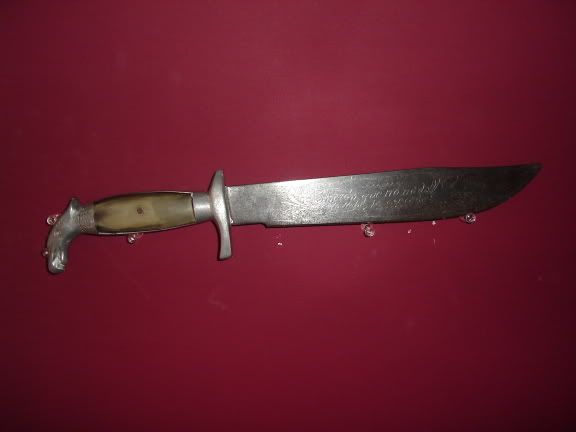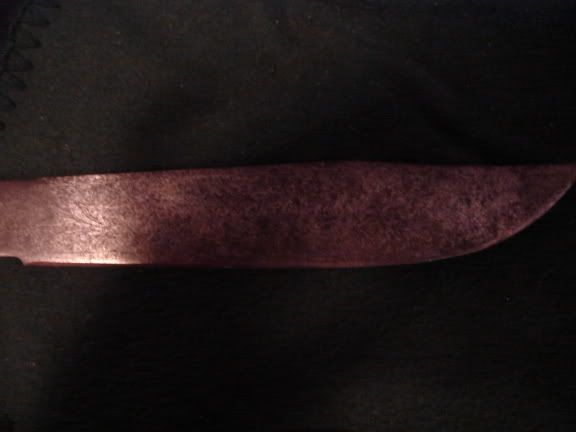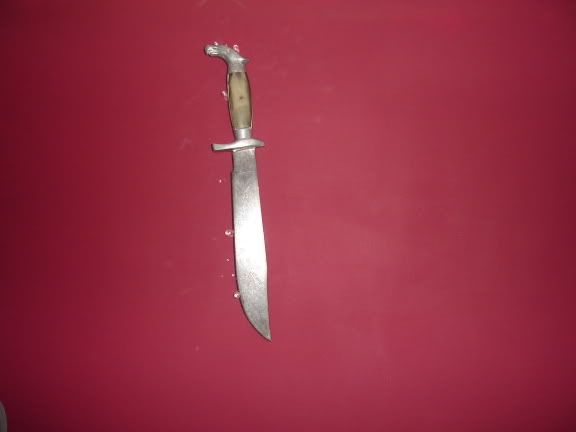My uncle is really into the Civil War, and he's a huge collector. He has dress swords, Sabre's, cutlass's, homemade forged daggers, uniforms, bayonets, firearms etc.
He found out I love to collect knives and daggers, so he gave me the most incredible dagger I've ever seen in my entire life! Really, it's grand but there's writing carved on the blade in Spanish and I can't seem to find out how to translate it.
I was told it was old Spanish but here's the writing:
Camaro'n que no nada
se lolleba la cascada
Other than that, I could take a picture of the dagger, if someone wants to see it but thank you for anyone taking the time to help me out. I tried for hours and couldn't find much at all.





Gender:
Points: 22
Reviews: 365